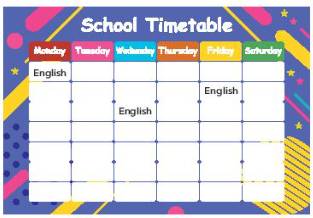Read the passage carefully and choose the correct answer. If you want to go to a university, you usually apply during your last year at school, when you are 17-18. You can apply to study at any university in Britain and most people choose a university that is not in their own town. So, university students usually live away from home. Students get a grant from the government to study. At the beginning of your last year at school, you receive an application form. On this form you choose up to...
Đọc tiếp
Read the passage carefully and choose the correct answer.
If you want to go to a university, you usually apply during your last year at school, when you are 17-18. You can apply to study at any university in Britain and most people choose a university that is not in their own town. So, university students usually live away from home. Students get a grant from the government to study. At the beginning of your last year at school, you receive an application form. On this form you choose up to five universities that you would like to go to. The form is sent to those universities with information from your school about you and your academic record. If the universities are interested in your application, they will ask you to attend an interview. If they are still interested after the interview, they will offer you a place. Any offer, however, is only conditional at this stage. Applications and interviews take place several months before students do their A-level examinations. These are the exams that you do at the end of your time at school. So, when a university makes an offer, it will tell you the minimum grades that you will have to get when you do your A-level exams. If you don’t obtain those grades then, you will not be able to get the place. It will be offered to someone else and you must apply again to another university. You don’t have to accept your place immediately. Some students don’t want to go straight from school to university. So, after they have taken their A-level, they take a year out to work or travel.
Question: If the university is interested in the application, _____.
A. the student will be offered a place
B. the student will have to attend an interview
C. the student will go straight to the university
D. the student will take an A-level examination






1. Are you still working on your project now?
(Bạn vẫn đang làm dự án của mình bây giờ chứ?)
Giải thích: Thì hiện tại tiếp diễn dạng câu hỏi: Are you + V-ing?
2. Nam and Lan are doing quite well at school this year.
(Năm nay Nam và Lan học khá giỏi.)
Giải thích: this year (năm nay) -> sử dụng thì hiện tại tiếp diễn để diễn tả hành động đang xảy ra thời điểm gần đây, dạng khẳng định chủ ngữ "Nam and Lan" số nhiều => are V-ing
3. Is she studying at the school library at the moment?
(Lúc này cô ấy đang học ở thư viện trường à?)
Giải thích: at the moment (ngay bây giờ) -> sử dụng thì hiện tại tiếp diễn dang câu hỏi chủ ngữ "she" => Is she V-ing?
4. Hoa is studying for her exam, so she can't come to the party right now.
(Hoa đang ôn thi nên không thể đến dự tiệc lúc này được.)
Giải thích: right now (bây giờ) -> sử dụng thì hiện tại tiếp diễn dạng khẳng định với chủ ngữ "Hoa" số ít => is V-ing.
5. We have English three times a week.
(Chúng tôi có tiếng Anh ba lần một tuần.)
Giải thích: three times a week (3 lần một tuần) -> dùng thì hiện tại đơn để diễn tả hành động lặp đi lặp lại ở hiện tại dạng khẳng định với chủ ngữ "we" => V (nguyên thể).